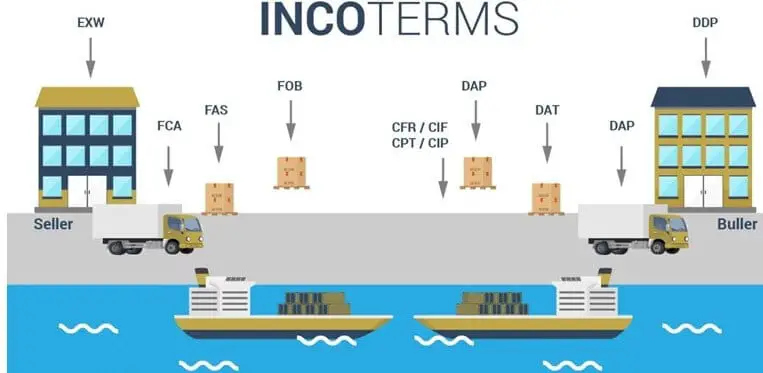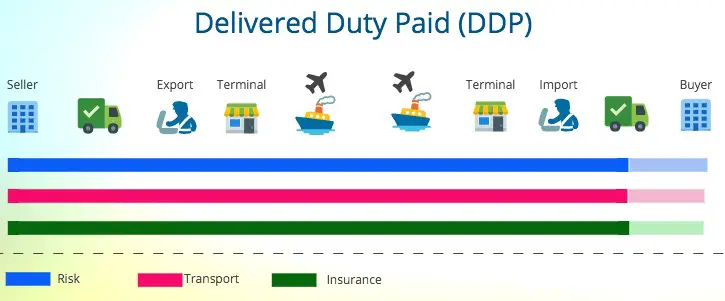Shipping various goods and packages is itself a tedious task. And when it comes to several abbreviated codes and terms, it becomes more difficult. However, these terms are very important to know and understand since they ensure smoother and more comfortable shipping. Today we will be looking at DDU vs DDP shipping comparison.
DDU and DDP are such International Commercial Terms, also known as Incoterms, designed by the International Chamber of Commerce. These two contractual terms are the means to indicate different types of sales and shipping transactions. It helps the importer or exporter determine who is responsible for paying which costs.
These terms and several other codes and conditions are intended to make trade communications easy and comfortable between the parties operating globally. These standardized terms help avoid confusion arising from different terminologies of trades used in other countries or trade councils.
Table of Contents
DDU VS DDP Shipping: Detailed Comparison
DDU and DDP are the most important trade terms that apply to all international shipping—business orders, personal gift packages, or commercial freight shipments. These terms are crucial in determining who is responsible for paying the import duties and taxes. So, it’s very important to understand these terms, their differences, and their advantages in advance.
And this article intends to do just that. Let’s go!
What is DDU?
The term DDU stands for Delivery Duty Unpaid. In this case, the recipient must settle all the import charges related to customs clearance, duties, and taxes to have their shipments delivered to their location.

For DDU shipping, the seller’s responsibility is limited to ensuring that the shipment reaches the recipient’s country’s drop-off location. The buyer will then have to take the financial responsibility to have their consignment released and delivered.
It is easier and cheaper for the sellers to use DDU shipping, but they must inform the recipient beforehand to avoid any customer dissatisfaction later.
It mustn’t come as a surprise to the buyer that he is expected to pay certain charges from their end upon the arrival of their parcels. If the recipient refuses to pay after the goods’ arrival, then the seller will have to pay additional charges to have it returned to them.
Seller’s Responsibility
The seller must undertake certain key responsibilities in a DDU shipping service. They are:
Advantages
Some advantages of using DDU shipping service are as follows:
What is DDP?
The term DDP stands for Delivery Duty Paid. In this case, it is the sole responsibility of the seller to incur all the viable costs related to the shipment, including import taxes and customs duties, until the recipient receives the parcel.

The seller assumes a more responsible role for DDP shipping as the term places maximum obligations on his shoulders. Not only does the seller need to meet all the shipping expenses, but they also take full responsibility for the shipment, including its storage, safety, insurance, and risk factors.
DDP shipping services costs are higher as it involves charges to be paid upfront to the logistics provider. However, the seller can embed a part of these charges within the shipment fees or product prices before the recipient. Still, the shipper will be liable for any losses, theft, or damage encountered by the cargo before it is delivered to the customer.
Seller’s Responsibility
The key responsibilities of the seller in the DDP shipping service are:
Advantages
Some advantages of using the DDP shipping service are as follows:
Conclusion:
International Shipping is getting more popular these days. However, certain rules and regulations are to be followed while undergoing such transactions. It is the responsibility of both the buyer and seller to be aware of the shipping practices as expected by the international codes.
Since international shipments feature more complexities than domestic deliveries, it is advisable to understand the shipping procedures. Familiarising yourself with these important Incoterms will serve as a good beginning.
After seeing the DDU vs DDP shipping comparison, you can understand they come with different responsibilities and have their advantages and disadvantages. The seller and buyer must agree beforehand on which service they wish to choose. Planning surely is the key to ensuring that products get delivered and received with the greatest ease and high profits are earned in the process.